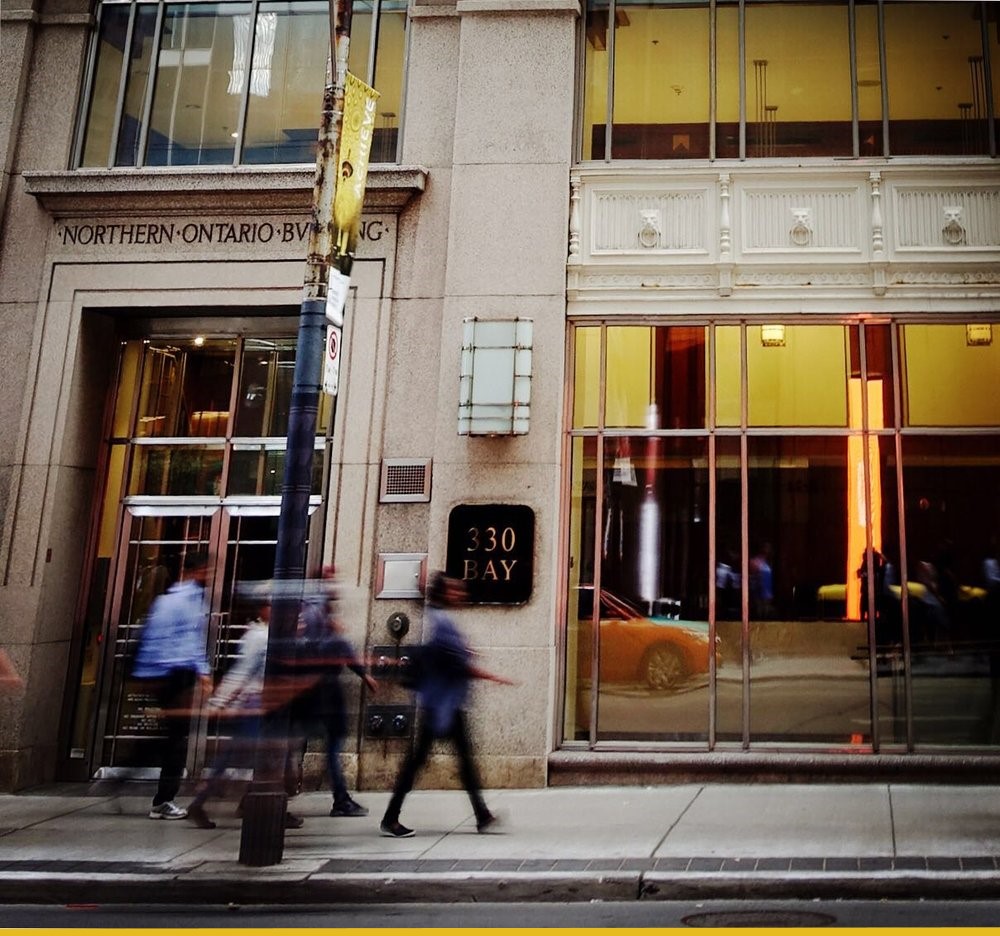Commercial and Civil Litigation
Lawyer Guelph

Why Work With Us
-
5,000 +
hearings, trials &
arbitrations completed -
$10 million +
In judgements obtained
And enforced -
50 +
Combined years
Of experience -
Unrivalled
expertise in high-value
high-stakes litigation
-

Guelph Civil and Commercial Litigation Lawyer
Given the complex nature of business disputes, it’s best to have an aggressive lawyer, Guelph, by your side. Chand & Co. has a great team of lawyers who will go out of their way to protect your rights and secure the most favourable outcome for your case. You can count on our effective legal representation, whether you are the defendant or the plaintiff. We have the experience and resources to handle even the most complex and demanding civil litigation cases. Our lawyers will take time to analyze your case before working to meet and even exceed your expectations. We seek to resolve legal matters quickly to minimize the cost and distraction of your business. With our many years of experience in Guelph, we can predict the outcome of a case if it proceeds to trial. Sometimes, we can recommend arbitration if we feel it offers a better resolution path. However, we will aggressively represent you even if your case proceeds to trial. We understand the trial process and are not intimidated by it.
-
civil and commercial
litigation law -
Regulatory Compliance
and Defence -
professional regulation and
-
Breach of contract
law -
Commercial Lease
Dispute Law -
Condominium Litigation
Law -
public
and administrative law -
criminal
defence law -
cannabis
law
-
Guelph Civil and Commercial Litigation Lawyer
Business disputes can be daunting, with high stakes and palpable stress. However, the right legal counsel can make a life-saving difference. At Chand & Co, our Guelph location is home to a dedicated team of civil and litigation attorneys ready to handle intricate and high-value litigation scenarios. Renowned for our tenacity, creativity, and pragmatic approach, we tirelessly work to safeguard and advance your interests, securing favourable outcomes even in the most complex cases.
Whether you’re on the plaintiff or defendant side, our adept team anticipates your unique needs and strives to surpass expectations. Recognizing the significance of your bottom line, we fervently advocate for the most cost-effective solutions. Our team provides insightful forecasts on case evolution, often turning to arbitration for appropriate and reasonable decisions. However, if trials become unavoidable, rest assured, we are prepared to fight vigorously on your behalf.
-
Guelph Regulatory Compliance & Defence Lawyer
Navigating the intricate landscape of regulatory compliance is a specialized skill our team at Chand & Co. in Guelph excels at. We provide a steadfast defence when challenges arise, offering a proactive and strategic approach to address regulatory issues spanning various industries. With a dedicated focus on shielding your interests, we ensure both compliance and an effective defence.
Place your trust in us to adeptly handle inquiries, investigations, and regulatory enforcement matters. At Chand & Co., we stand as your committed legal partner, steadfastly preserving your compliance and safeguarding against potential regulatory risks.
-
Guelph Professional Regulation and Discipline Lawyer
Should you find yourself under investigation or facing disciplinary measures, seeking proactive advice on handling business matters, our professional regulation and discipline lawyers are prepared to assist. We understand how important the disciplinary proceedings are and excel in crafting strategic defences, skillfully navigating the intricate terrain of regulatory compliance and disciplinary actions with finesse.
At Chand & Co, our lawyers specialize in representing licensed professionals confronted with inquiries from regulatory bodies. Recognizing the complexity of disciplinary proceedings, we make every effort to ensure our clients emerge from these challenges with their professional standing intact. Going beyond mere legal representation, our commitment extends to becoming your strategic partners, reliable allies you can count on through any difficulties your business may encounter.
-
Guelph Breach of Contract Lawyer
Facing the consequences of breached contracts can be distressing, as parties often neglect their responsibilities. When an individual fails to uphold the terms outlined in written or verbal agreements, accountability for damages may follow, leading to financial setbacks, stress, and disruptions for both you and your family.
Numerous factors can contribute to a party violating a contract, some potentially warranting leniency while others do not. Irrespective of the reasons, the aftermath of a contract breach typically involves economic losses and the denial of intended contractual benefits.
Chand & Co possesses the expertise to navigate breach of contract cases. With our knowledgeable counsel, you will find it easier to navigate complex agreements and terms, ensuring your rights are protected and providing you with peace of mind.
-
Guelph Commercial Lease Dispute Lawyer
At Chand & Co., we skillfully navigate a diverse range of contentious commercial and business disputes, representing a broad clientele. Acknowledging the crucial role effective advocacy plays in handling such conflicts, our commercial litigators are dedicated to achieving positive outcomes while minimizing both cost and delay.
Our commercial lease dispute lawyers bring a wealth of experience, covering a broad spectrum of commercial litigation and arbitration. This includes adept handling of contract claims, real estate and lease disputes, shareholder conflicts, Director and Officer liability, commercial fraud, franchise disputes, and banking litigation. Our proficiency extends across various corporate and commercial sectors.
Should you require a comprehensive review of your lease to identify pertinent legal issues and develop a sound resolution strategy, potentially involving alternative dispute resolution, Chand & Co. is poised to assist. We stand steadfastly by your side, prepared to litigate on your behalf whenever necessary.
-
Guelph Condominium Litigation Lawyer
Chand & Co. is prepared to offer high-quality legal support for a range of condominium-related issues. The popularity of condominiums among thousands of Guelph residents has made it a favoured living choice, providing a multitude of conveniences adaptable to diverse lifestyles. However, this shift in housing preferences inevitably triggers alterations in condominium governance, leading to disputes.
This emphasizes the necessity for specialized legal counsel in navigating this intricate environment. Beyond our proficiency in condominium law, our extensive experience in real estate litigation becomes a valuable asset for clients dealing with condominium law issues due to the significant overlap between these areas.
Our multidisciplinary expertise allows us to unravel intricate and pervasive issues, whether during the development phase or the ownership stage. We are dedicated to working tirelessly to identify the most suitable and cost-effective solutions for our clients.
-
Guelph Public & Administrative Lawyer
Chand & Co. is a specialist in administrative and public law, bringing extensive expertise to the forefront. Our team has successfully navigated the intricacies of prominent cases in both domestic and international courts and tribunals, understanding the complex legal, commercial, and politically sensitive dimensions involved.
What sets us apart is the unparalleled breadth and depth of regulatory insight within our global practice. We seamlessly integrate our proficiency in administrative and public law with a keen understanding of government relations and policy advocacy, providing our clients with holistic and strategic support. Our approach involves deploying a comprehensive array of arguments and strategies, customized to align with your objectives while remaining mindful of the political and commercial risks at play. Whether you require representation before administrative tribunals or leadership in government and regulatory investigations, Chand & Co. is your trusted partner equipped to handle it all.
-
Guelph Criminal Defence Lawyer
Chand & Co. is recognized as a reputable criminal defence legal entity in the Guelph region. Our seasoned lawyers bring extensive trial experience, specializing in the defence of clients facing a spectrum of criminal offences. This includes, but is not limited to, impaired driving, assault, sexual assault, domestic assault, drug-related offenses, weapon charges, and other criminal allegations falling under the Criminal Code before the Ontario Court of Justice and the Superior Court of Justice in Ontario.
Navigating the complexities of criminal law can be compared to traversing a labyrinth, and facing the courtroom alone and unprepared is not advisable. However, with Chand & Co. by your side, you’ll receive support from a team dedicated to safeguarding your rights and interests. We equip you to enter the court with a strategic defence.
-
Guelph Cannabis Lawyer
In the wake of cannabis legalization in Canada, it is imperative for residents of Guelph to stay abreast of the precise regulations and laws dictating the use, possession, and distribution of cannabis within their locality. Whether you’re an individual in need of legal guidance or a business proprietor navigating the complexities of the cannabis industry, the presence of an adept Guelph cannabis lawyer is indispensable.
Chand & Co. stands as a dedicated specialist in cannabis law, providing all-encompassing legal services meticulously crafted to cater to the distinctive requirements of our clients in Guelph and the surrounding regions.

Our Practice Areas
Our commercial and civil litigation lawyers handle a wide range of practice areas. We are the go-to law firm if you need :
-
civil and commercial
litigation law- Debt Collection Lawyer Guelph
- Debt Collection Lawyer Kitchener
- Debt Collection Lawyer Ottawa
- Appellate Litigation Lawyer
- Franchise Litigation Lawyer
- Arbitration Lawyer
- Debt Collection Lawyer
- Breach of Contract Lawyer
- Condominium Litigation Lawyer
- Real Estate Litigation Lawyer
- Commercial Lease Dispute Lawyer
- Shareholder and Partnership Dispute Lawyer
-
- Funeral Home and Funeral Professional Lawyer
- Long Term Care and Retirement Homes Lawyer
- Motor Vehicle Dealers Act Lawyer for Salespersons and Dealers
- Consumer Protection Act Lawyer for Corporations and Businesses
- Liquor Licence and Gaming Lawyer
- Municipal Licensing and Compliance Lawyer
- Occupational Health and Safety Act Lawyer
- Tarion Warranty Corporation Lawyer for Builders and Developers
- Environmental Protection Act Lawyer
- Ontario College of Trades and Apprenticeship Act Lawyer
- Electricity Act and Electrician Lawyer
- Competition Act Lawyer
-
- Police Officer Lawyer
- Lawyer for Lawyers
- Real Estate Professional Lawyer
- Sport and Professional Athlete Lawyer
- Mortgage Agents and Brokers Lawyer
- Motor Vehicle Dealers Act Lawyer for Salespersons and Dealers
- Chartered Professional Accountants Lawyer
- Nurses and Nurse Complaints Lawyer
- Healthcare Professional Lawyer
-
The Chand & Co. Law Firm Advantage
From the boardroom to the courtroom, from administrative and regulatory tribunals to the Superior Court,
our clients trust us to navigate complex litigation disputes and deliver results.
-
TRUST
Our clients entrust us with their most complex legal disputes when the stakes are at their highest and the outcome is of vital importance. We treat our client’s needs as if they are our own and stand beside them in their time of need. -
TRACK RECORD
When you hire our team, you choose an accomplished and respected litigation law firm with a proven track record of success that will have your best interests in mind. We pride ourselves in delivering unparalleled legal representation and professional excellence to our clients. -
UNRIVALLED SERVICE
We take pride in providing exceptional personal and professional representation. Unlike many other firms, we are available around the clock to protect, defend, and advance your interests.
Understanding The Steps In A Civil Lawsuit
In the Ontario Superior Court of Justice
Commencing a Claim
The best place to start an action is at the Ontario Small Claims Court if you are suing for $35,000 or less. You must commence the claim in the Ontario Superior Court of Justice if the claim is above $35,000. Let’s consider actions commenced in the Superior Court of Justice for claims above $35,000. Before commencing a claim, the plaintiff prepares a statement of claim outlining the figure they are suing for. The statement also outlines the material facts that will be relied on in court. After preparing the statement of claim and paying the applicable filing fee, the court will authorize the issuance of a statement of claim. The plaintiff pays the filing fee to the Minister of Finance.
The claim is initiated under Rule 76 of the Rules of Civil Procedure if the claim is $200,000 or less. This process is also known as the simplified procedure. Claims above $200,000 are commenced under the ordinary rules. If the parties involved agree, they can rely on the simplified procedure even for claims above $200,000.
After issuing the statement of claim with the court, the plaintiff should serve the claim to all the listed defendants. The plaintiff must also file an affidavit of service with the court.
Defending a Claim
The defendant prepares a statement of defence if they intend to challenge the action commenced against them. This statement is served to the plaintiff and all relevant parties as outlined under the Rules of Civil Procedure. The defendant pays a service fee. The defendant also prepares an affidavit of service to show that the defence statement has been served to the relevant parties.
At this point, the defendant can commence a counterclaim against the plaintiff or a cross-claim against a co-defendant. There is also an option of making a 3rd party claim against any other party not listed.
The plaintiff can have a defendant noted in default if the defendant fails to defend action within 20 days of receiving the statement of claim. If this happens, the defendant can no longer file a defence without first seeking the plaintiff’s consent or filing a motion for an order to allow them to file a defence. Failing to defend a statement of claim could also mean that the defendant has accepted all the allegations contained in the statement. This allows the plaintiff to seek a default judgment against the defendant.
Discovery Stage
At this stage, the parties involved can agree to exchange evidence through the discovery process. The parties must first agree on a discovery plan to use this method to gather evidence. As of January 1, 2010, this agreement must be within 60 days following the close of pleadings and before alternative attempts to gather evidence.
All the parties involved in civil litigation will receive an affidavit of documents. Either party can serve a notice of examination to the other party outlining the place and time when the parties will come together and answer questions under oath. These examinations are transcribed and recorded. The transcripts serve as evidence that can be used in court to challenge the presented evidence.
Mediation
The parties involved can agree to settle the case out of court through mediation. Mediation saves the parties time and money. As stated under rule 24.1 of the Rules of Civil Procedure, parties are subject to mandatory mediation for civil actions commenced in Toronto, Windsor, or Ottawa. Each party creates a mediation brief and serves it to the other party before mediation. A mediator is a neutral party that encourages the parties involved to dialogue and resolve their issues. All details, including the settlement offers made during mediation, are confidential.
Setting Down for Trial
At this point, a party sets down an action for trial. After the registrar places the action on the trial list, the parties attend an assignment court to choose when they will be available to attend the trial.
Pre-trial Conference
A pre-trial conference occurs before trial whereby the parties involved appear before the judge to narrow down the issues and concerns involved before trial. At this point, the parties will have an open dialogue to determine whether they can resolve the issues before trial.
The Trial
If the parties cannot resolve their issues or reach an agreement at the pre-trial conference, the case will proceed to trial. During the trial, both the plaintiff and defendant and their lawyers will have an opportunity to make opening statements and introduce the case to the judge or jury. Both parties will present evidence by providing documents as exhibits and calling witnesses. The plaintiff witnesses come first. After they testify, the other party will cross-examine them. The defence will also have an opportunity to call their witnesses. After presenting evidence and calling witnesses, the plaintiff and defendant will make the closing submissions.
After the closing submissions, the judge can give a judgment or reserve this decision and give judgment later.
Find a Litigation Lawyer in Guelph Near Me
At Chand &Co.’s practice, commercial and civil litigation has always been our core business. We have what it takes to represent clients in various disputes. If you need a lawyer in Guelph or the southwestern Ontario area with services that you can rely on, we invite you to contact us today. Call us today for solid legal services and representation at 416-583-2377.
case evaluation


Our Reviews
We are proud to have helped many clients with their legal needs with our personalized and attentive service. We are grateful that our clients endorse us heartily and without reservation. See some testimonials of what some of our valued clients are saying about us:












